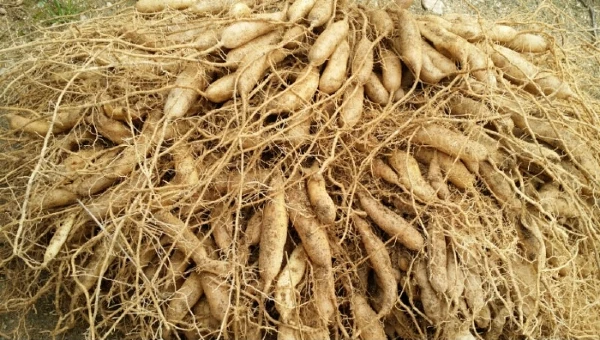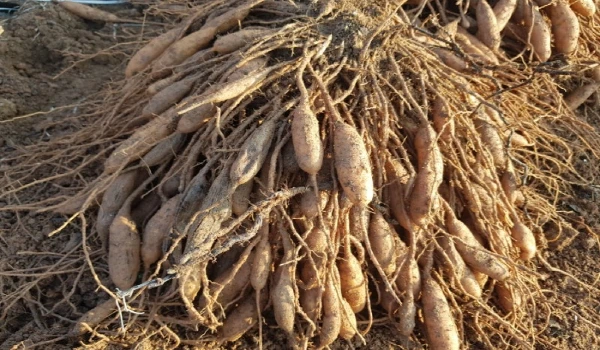Asparagus Cochinchinensis 5 Benefits, Side Effects
Asparagus cochinchinensis Nutrition

| Asparagus cochinchinensis (100g) Nutrition | |||
| Carbohydrate | Protein | Fat | Calories |
| 4g | 1.2g | 0.3g | 42kcal |
| Main Nutrition | Dietary fiber, protein | ||
| Main Benefits | Relieves diabetes, improves skin health, restores energy | ||
| Side Effects | If you have a weak digestion period, be careful of excessive intake. | ||
Asparagus cochinchinensis is a plant belonging to the Liliaceae family. Small white flowers bloom from May to June, and the fruits are light green at first, but become opaque white as they ripen. The leaves have a thorn-like shape. Asparagus cochinchinensis has various effects and is often used as a medicinal herb. The tuberous root is soaked in alcohol, aged, and then eaten, or it can be decocted and consumed with other medicinal herbs. The tender stems can be eaten raw or as a side ingredient in various dishes.
Asparagus cochinchinensis Benefits

1. Anticancer Effect
Its representative effect is that it helps with anti-cancer effects. Asparagus cochinchinensis contains various components such as glucoside and asparagine. They help prevent cancer cells from developing and inhibit their spread and spread to other organs. In particular, it is said to have better efficacy against mammary cancer. Additionally, as antioxidants, they help remove free radicals that can cause cancer. It also helps restore damaged cells.
2. Bronchial health
Since ancient times, Asparagus cochinchinensis has been said to be effective in relieving cough and phlegm. This is thanks to the glucoside component contained in Asparagus cochinchinensis. This ingredient helps improve lung function, thereby supporting overall respiratory health. In particular, it helps improve bronchial diseases such as tonsillitis. It also helps stop coughing and is effective in discharging phlegm, making it effective in preventing and improving diseases such as asthma.
3. Diabetes relief
In addition to its anti-cancer properties, it is rich in ingredients that regulate insulin levels in aging and diabetes. In fact, one study found that sugar management became easier when consuming Cheonmundong regularly.
4. Skin Health
Asparagus cochinchinensis contains various antioxidant substances. They play a role in removing free radicals that can cause skin aging. This helps restore damaged skin cells and prevent skin aging. Additionally, asparagine contained in Asparagus cochinchinensis helps maintain moisture in the skin and prevents the skin from drying out. This is effective in making skin elastic and healthy.
5. Recover energy
Consuming Asparagus cochinchinensis can help increase stamina and restore energy. This is because Asparagus cochinchinensis contains a component called beta-sitosterol. This ingredient improves blood circulation and helps the body’s metabolism. Through these effects, it is effective in relieving fatigue and strengthening weakened physical strength, so it is also used as a medicinal herb for rejuvenation and nourishment. It also strengthens the weakened body and helps prevent various diseases.
Side Effect
- Because it has cold properties, excessive consumption may cause symptoms such as diarrhea or abdominal pain.
- If consumed by people with weak digestive systems, it may have adverse effects on the body.
References
🔹PFAF: Asparagus cochinchinensis – (Lour.)Merr.
🔹Useful Tropical Plants: Asparagus cochinchinensis